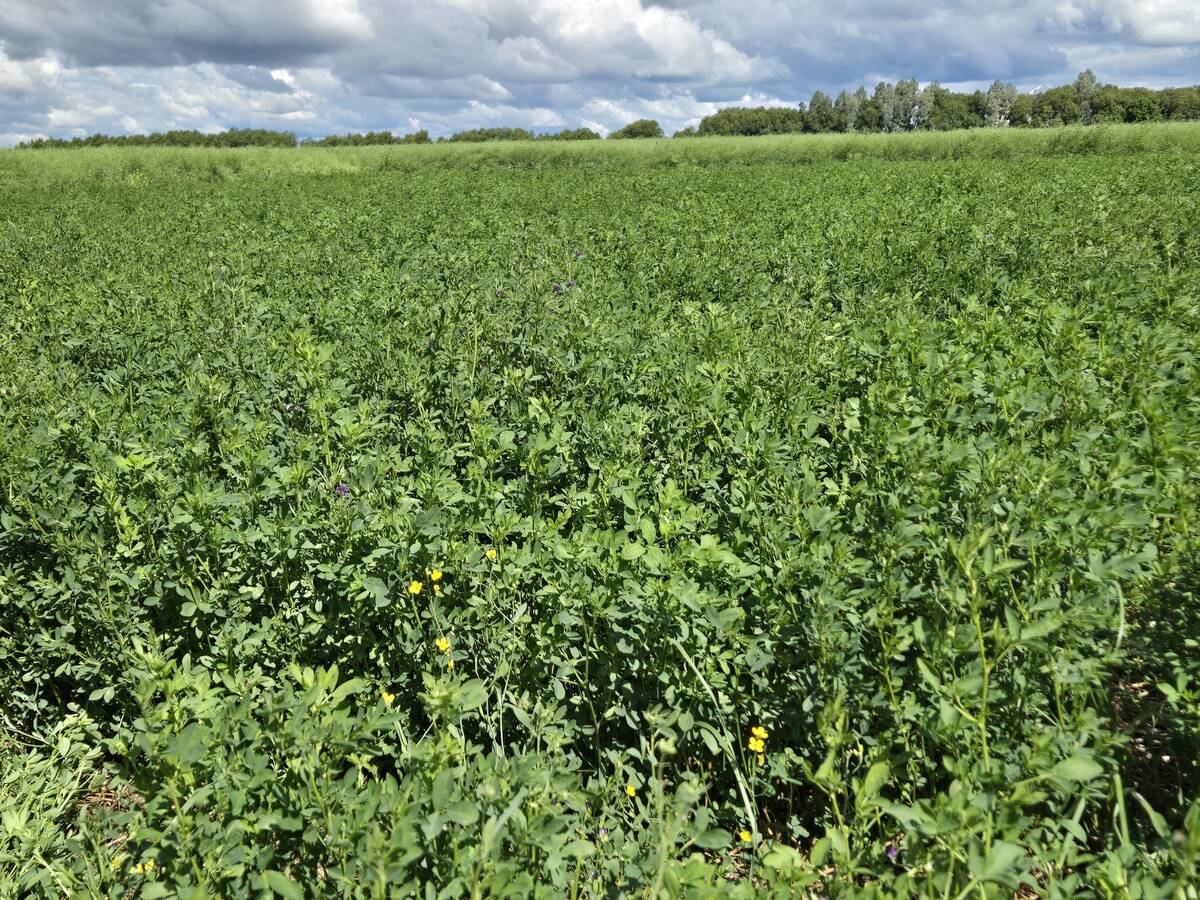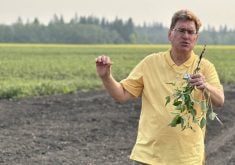It took more than luck to seal the deal that will see the biggest potato plant in Western Canada go up near Lucky Lake, Sask.
Local economic development officer Doug Barker credits the will of the people.
“We’re the type out here to really make things happen,” he said.
Local shareholders of the Coteau Hills Potato Corp. put up $1.5 million for the $7 million plant that is expected to start cleaning and bagging 5,000 sacks of potatoes a day in September.
Judith River Farms of Alberta and Sask Ida Farms of Idaho are partners in the venture.
Read Also

Manitoba Parkland research station grapples with dry year
Drought conditions in northwestern Manitoba have forced researchers at the Parkland Crop Diversification Foundation to terminate some projects and reseed others.
The provincial government threw its support behind the initiative with a verbal promise to make sure roads in the area stand up to the increased truck traffic needed to haul potatoes in and out of Lucky Lake.
The deal reminds Barker of a proverb, slightly altered, which he likes to quote:
“The government will help those who help themselves, and I think we’ve really seen that here.”
It could be Lucky Lake’s motto, he said.
“There’s been a couple of projects that didn’t go the way we intended and people were saying it was because the government didn’t do this or the government didn’t do that.
“This is a totally different approach by making sure the government doesn’t take the lead, which is the way things are going now and everything that’s been done has been done at the community level and that’s the reason these projects are happening.”
Community co-operation
Rosetown-Biggar MLA Berny Wiens said a spirit of co-operation helped get the project up and running in Lucky Lake.
“We’re confident the road network will evolve in parallel with the requirements of the industry,” Wiens said.
It’s expected 50 new jobs will be created when the plant expands to process 2,000 acres of locally grown potatoes instead of last year’s 850.
The operation is expected to generate $20 million in annual gross revenue selling potatoes to domestic and United States markets, according to a news release.
That means major spinoffs for the local economy, Barker said.
“Pretty soon you’ll have a potato equipment supplier move in here, another business or two, more trucking, apartments….”
The plant will sell seed and fresh-packed potatoes, depending on market price and demand.
Potatoes weighing less than 10 ounces are used for seed. Larger ones will be sold mainly to restaurants, he said.
The expansion will include a plant, offices and four or five more storage sheds. Workers will be hired for positions in line work, sorting, shipping and loading.
















